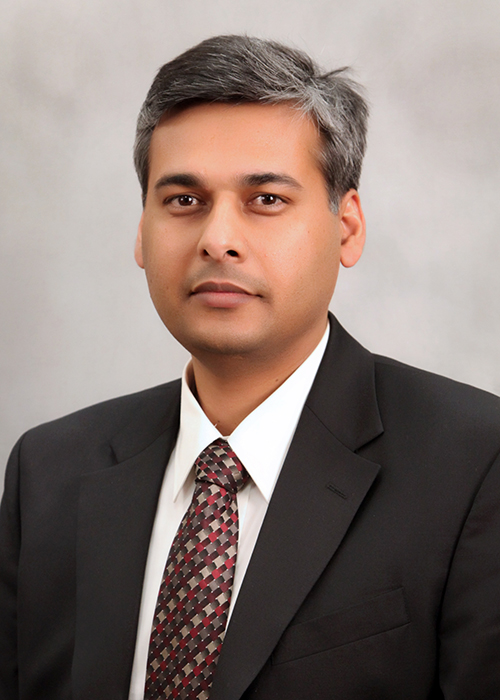News at the HPC²
HPC2 Researcher and MSU professor Leads NSF-funded Effort to Boost Computational Molecular Sciences Education
October 1, 2021
Neeraj Rai, Photo by Kristen Polk
Neeraj Rai, Ergon, Inc. Distinguished Professor in MSU's Dave C. Swalm School of Chemical Engineering, is the principal investigator on an approximately $1 million NSF grant to establish an Institute for Computational Molecular Science Education, which will help train the next generation of molecular scientists and engineers in the computational techniques such as molecular dynamics, Monte Carlo methods, data science and machine learning that are defining the future of the field.
"Having the discipline-specific knowledge is important, but everything is pointing toward a future where being able to work with data, algorithms and artificial intelligence is going to be highly valued," Rai said. "The technology and capabilities are only going to continue to improve, and that can be combined with the science and engineering background to know when there are flaws in the data that might violate underlying principles, as well as knowing which part of the data to focus on."
The institute will emphasize teaching the fundamentals of molecular simulation techniques and the efficient use of the nation's high-performance computing systems. It will also serve as a repository of well-curated training materials.
The multi-institution initiative aims to train researchers across the country, particularly targeting graduate students, postdocs, early-career faculty and groups that are underrepresented in computational science. With a goal of training 800 people during the course of the four-year grant period, the initiative will help position U.S. institutions to increase competitiveness in molecular modeling and simulation, a key part of developing new improvements in areas such as medical drugs, environmentally safe solvents and degradable plastics.
With Rai serving as principal investigator, other investigators on the grant include Jindal Shah of Oklahoma State University, Sapna Sarupria of the University of Minnesota, Twin Cities, Eric Jankowski of Boise State University and Michael Shirts of the University of Colorado Boulder. The researchers created and ran pilot training programs from 2017-2019 after research indicated a growing need for focused training as many universities may not have the cyber infrastructure or expertise to educate students in advanced computational techniques targeted at molecular science and engineering.
"We have created a fairly large advisory board with a diverse background that will help provide a general direction for the institute and identified instructors that can teach specific techniques if we need something more focused," Rai said. "We want to keep the training flexible so that it can evolve and be sustainable over a long period.
"Creating a network of people with these skills will also benefit participants as they move through their education and careers. Graduate students will bring back new skills to their universities and research groups as well."
The initial workshops will take place at MSU and OSU, with future sites rotating across the country. For more information, contact Rai at neerajrai@che.msstate.edu.
For more on the Swalm School of Chemical Engineering, visit www.che.msstate.edu.
By James Carskdon
